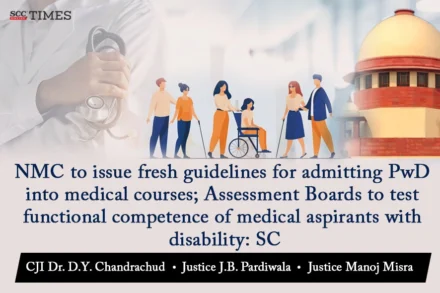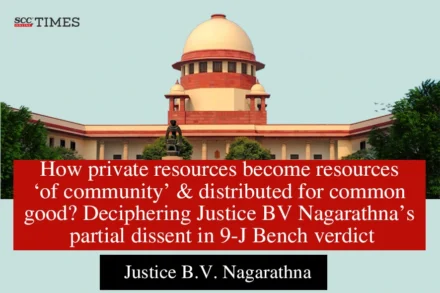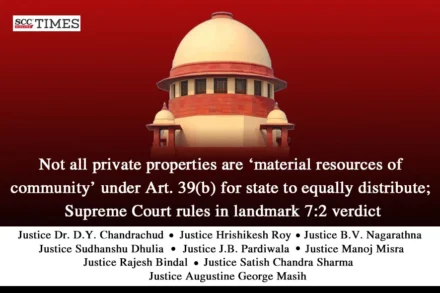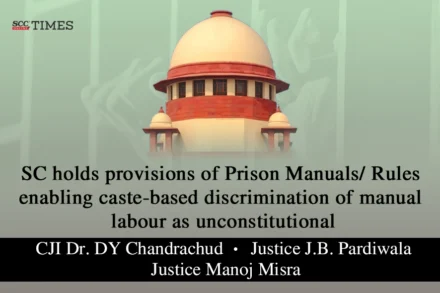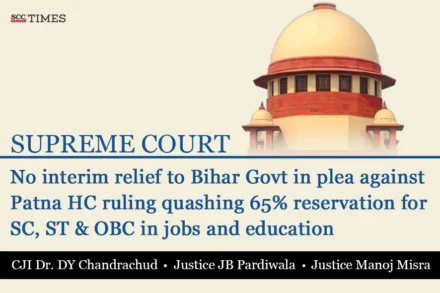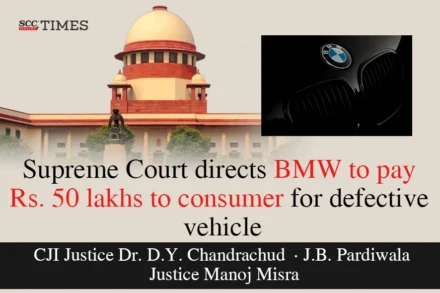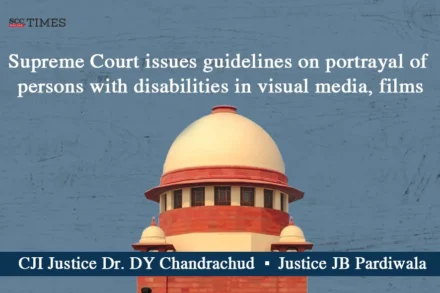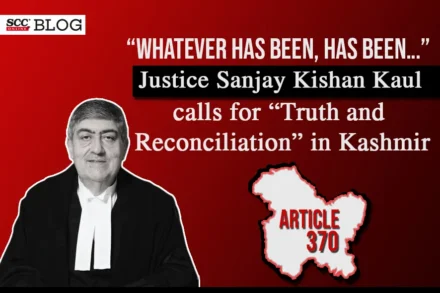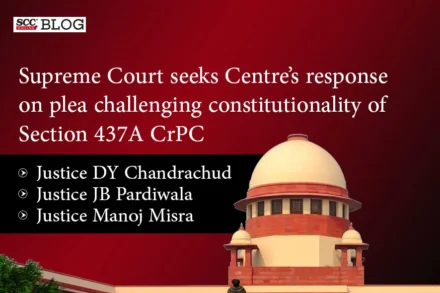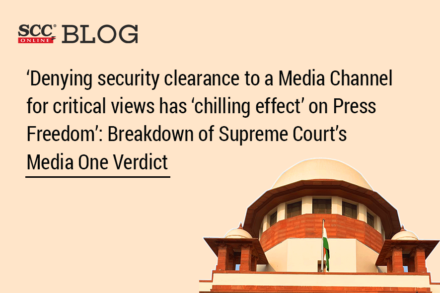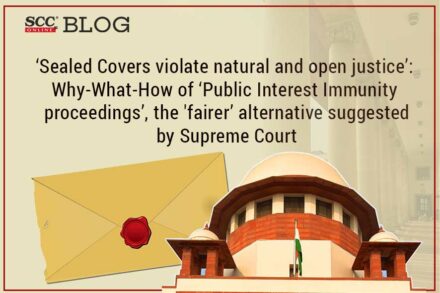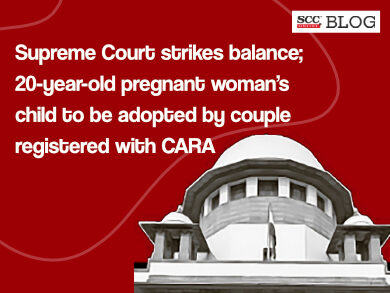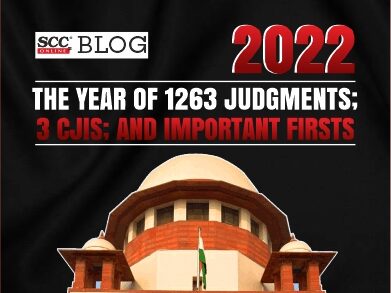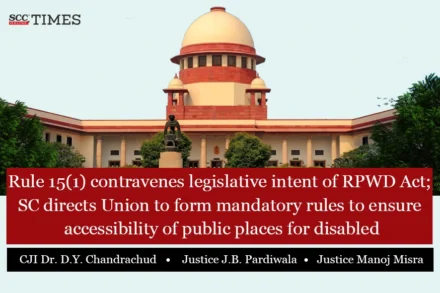
Rule 15(1) contravenes legislative intent of RPWD Act; SC directs Union to form mandatory rules to ensure accessibility of public places for disabled
“While it is true that accessibility is a right that requires “progressive realization”, this cannot mean that there is no base level of non-negotiable rules that must be adhered to. While the formulation of detailed guidelines by the various ministries is undoubtedly a laudable step, this must be done in addition to prescribing mandatory rules, and not in place of it.”



